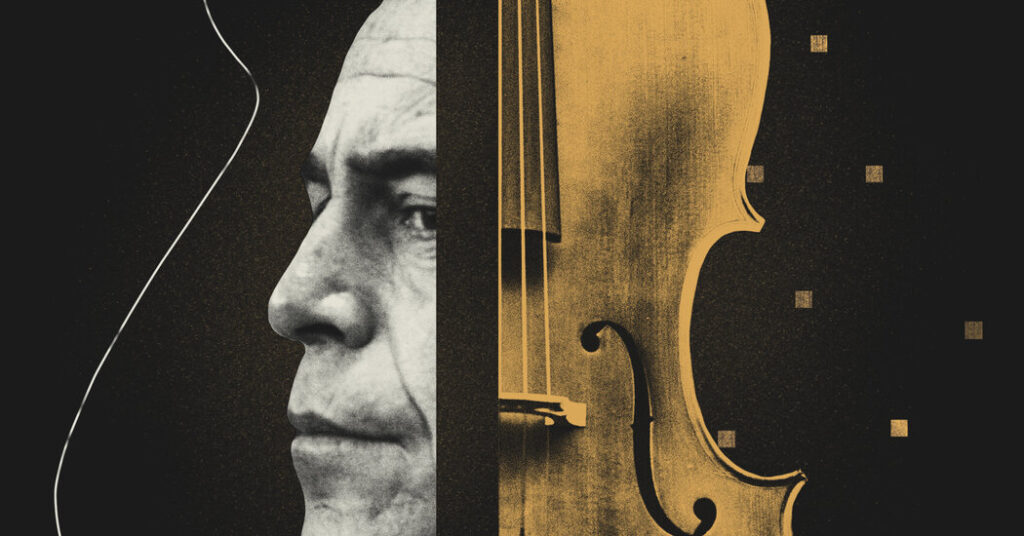
At first Mr. DeRosa didn’t take Mr. Epstein’s command seriously. But Mr. Epstein kept calling, as did members of his staff, asking if he’d made any progress. Mr. DeRosa got to work tracking down a cello.
Like many professional musicians, Mr. DeRosa was wired into the small world of rare string instruments, a few of which command prices as high as $20 million. His own cello, made by the Italian master Domenico Montagnana in 1739, is considered one of the world’s finest and is likely worth millions of dollars. Mr. DeRosa assured Mr. Epstein he wouldn’t have to spend that much.
Soon after, Mr. DeRosa was visiting his mother in Los Angeles when he learned of a cello being sold there by a musician who recorded soundtracks for Hollywood studios. (Before that, the cello had been played by a member of the Indianapolis symphony orchestra.)
While not a Stradivarius or a Montagnana, this cello had a distinguished pedigree, and was manufactured by Ettore Soffritti, who worked in the string instrument center of Ferrara, Italy, from the late 1800s until his death in 1928. Benning Violins, the Los Angeles dealer, described the cello’s sound as “rich and powerful” and said the instrument was “suitable for the finest of cellists.”
Mr. DeRosa tried the cello. He was smitten. He said he considered it “one of the greatest modern cellos in existence.” (By “modern” he meant any produced after the Italian Renaissance.) With an asking price of $185,000, he also considered it a bargain.
Mr. Epstein seemed pleased when Mr. DeRosa told him he’d found something. He said the cello’s intended recipient — a young Israeli man named Yoed Nir — had to test the instrument first. Mr. DeRosa knew nearly every up-and-coming cellist, but he had never heard of Mr. Nir.
Mr. DeRosa had the cello on a trial basis, and Mr. Nir tested the instrument on a visit to Mr. DeRosa’s mother’s house in Los Angeles. Mr. Nir, who was about 30 years old and had dark, shoulder-length hair, which he tossed theatrically while playing, played some of Bach’s unaccompanied cello suites. He had clearly had musical training (he was a graduate of the Jerusalem Academy of Music and Dance), but Mr. DeRosa considered his playing unexceptional by his exacting standards. He could think of many young cellists more deserving of such an instrument. “I thought it incredibly odd that Jeffrey had chosen this guy,” Mr. DeRosa recalled.

